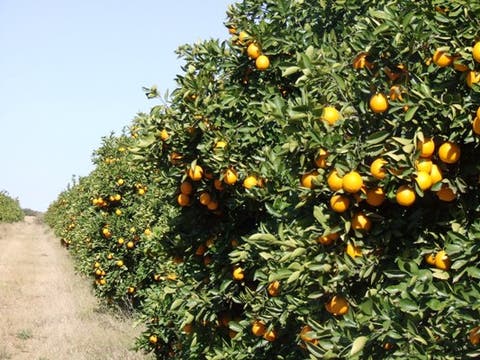Companies uncertain over the future
Throughout the year, companies have been confronted with different operational challenges emanating from a difficult operating environment.
The difficulties and challenges manifested differently from sector to sector, which prompted individual companies to adopt survival models that would sustain operations and profitability.
In recent published financials for the third quarter 2024, the companies are uncertain over the future, seeing no immediate end to operating environment challenges.
Construction firm, Masimba Holdings, says the macroeconomic environment is expected to remain tight due to contractionary fiscal policy and ongoing pricing distortions arising from exchange rate discrepancies in the market.
“However, we believe that securing sustainable financing for infrastructure development projects underway nationwide, will anchor sustained growth and contribute to tangible socio-economic transformation.
“Despite the challenging environment, the group is forecasted to remain profitable for the financial year ending December 31, 2024,” it said.
National Foods said the key economic issues faced by the business include cost pressure brought about by the change in the Value Added Tax (VAT) status of many of the products that the group manufactures; many of these products have had their status changed from “zero-rated” to “exempt.”
This means the VAT incurred in producing these products no longer ranks for deduction in the calculation of net VAT payable.
“In essence, the VAT incurred has now become part of the cost of production, compressing margins,” the group said.
National Foods also noted the rapid increase in operating costs in real terms, notably power and human capital costs.
“The supply of power became increasingly unreliable during the period, necessitating greater reliance on expensive backup power,” the company said.
National Foods said key focus in the period ahead will be to drive procurement, as well as operating and cost efficiencies, in order to improve margins.
“A second area of focus will be the group’s newer categories, CCB (cereals), pasta, and biscuits, where we will seek to build further on the positive momentum seen so far in these categories,” the company said.
Zimbabwe National Chamber of Commerce (ZNCC) president, Tapiwa Karoro, told Business Weekly that Zimbabwe’s current economic landscape and high production costs are a substantial barrier to the competitiveness of local products in regional markets.
He said the challenge arises from a combination of factors such as high energy costs, currency volatility and infrastructure limitations.
“Energy costs in Zimbabwe are elevated due to erratic supply and reliance on costly fuel imports. Companies can reduce these costs by investing in solar energy systems, energy-efficient machinery and conservation practices.
“Companies can also explore public-private partnerships (PPPs) or collaborate with renewable energy providers to reduce costs.
“Policymakers can support these efforts by offering incentives for renewable energy projects and by reducing import duties on fuel,” he said.
Karoro said productivity can be improved through upskilling initiatives tailored to Zimbabwe’s key sectors, such as mining, manufacturing and agriculture, saying companies can partner with local universities and vocational institutions to develop training programs that align with industry needs.
He also noted that SMEs, which dominate Zimbabwe’s private sector, often face high input costs due to smaller order quantities; hence, by forming consortia or cooperatives to purchase raw materials and other inputs in bulk, these businesses can benefit from economies of scale and reduce per-unit costs.
“The government could support this through policies that facilitate bulk importation of key raw materials with reduced import duties for consortium members,” he said.
Companies have also been embracing digital transformation that is critical for cost efficiency.
Econet Wireless said it remains focused on leveraging emerging technologies to enhance its service offerings.
It noted that the ongoing network modernisation and increased 5G footprint position the company to deliver faster and more reliable services.
“The modernised network will provide increased network performance as well as unlocking new capabilities that will allow the business to offer new, exciting, and personalised services for our customers as well as support the transition to a full digital services provider,” the company said.
Karoro said companies can adopt digital tools for inventory management, procurement, and customer engagement, all of which can streamline processes and reduce expenses.
“Government support for digital infrastructure, such as internet access in rural areas, could extend the benefits of digital solutions to businesses throughout the country,” he said.
Karoro also added that companies should also explore collaborative innovations, such as industry clusters, where companies share resources and insights to improve efficiency.
Innscor Africa, a diversified conglomerate, said management teams continue to deploy focus toward navigating the complex policy landscape and engage with the relevant authorities in an effort to achieve sustainable, long-term solutions with regards to pricing and the impact of the changes emanating from the revised VAT regulations.
IH Securities said recent capacity investments to increase efficiencies have supported volume growth for Delta, which has aided steady supply of product into the market.
The stockbroking and research firm said volumes in 2H25 will likely be propelled by the traditional holiday spend; however, the downside is that of dampened demand as the impact of the El Nino-induced drought lingers on.
IH said forward-looking focus for management will be on upscaling marketing efforts to reinforce market positions, as well as increasing informal market capacity.
Economist Dr. Prosper Chitambara said local companies should leverage the digital economy to enhance efficiency, but most importantly, to lower the cost of production.-ebsinessweekl











